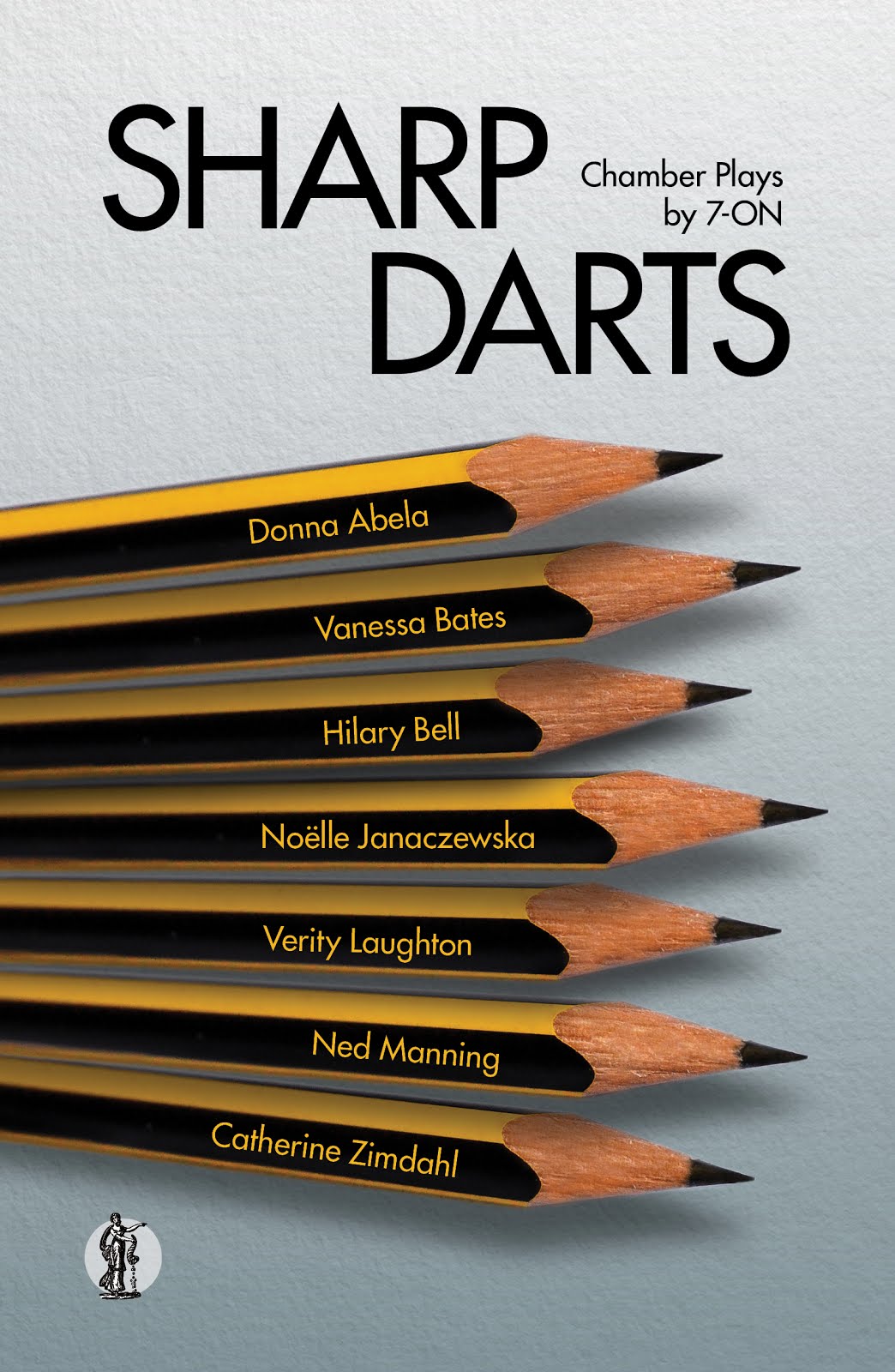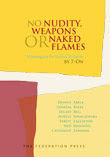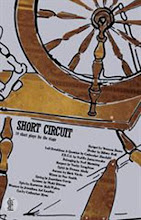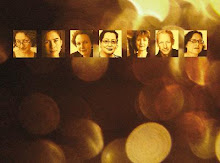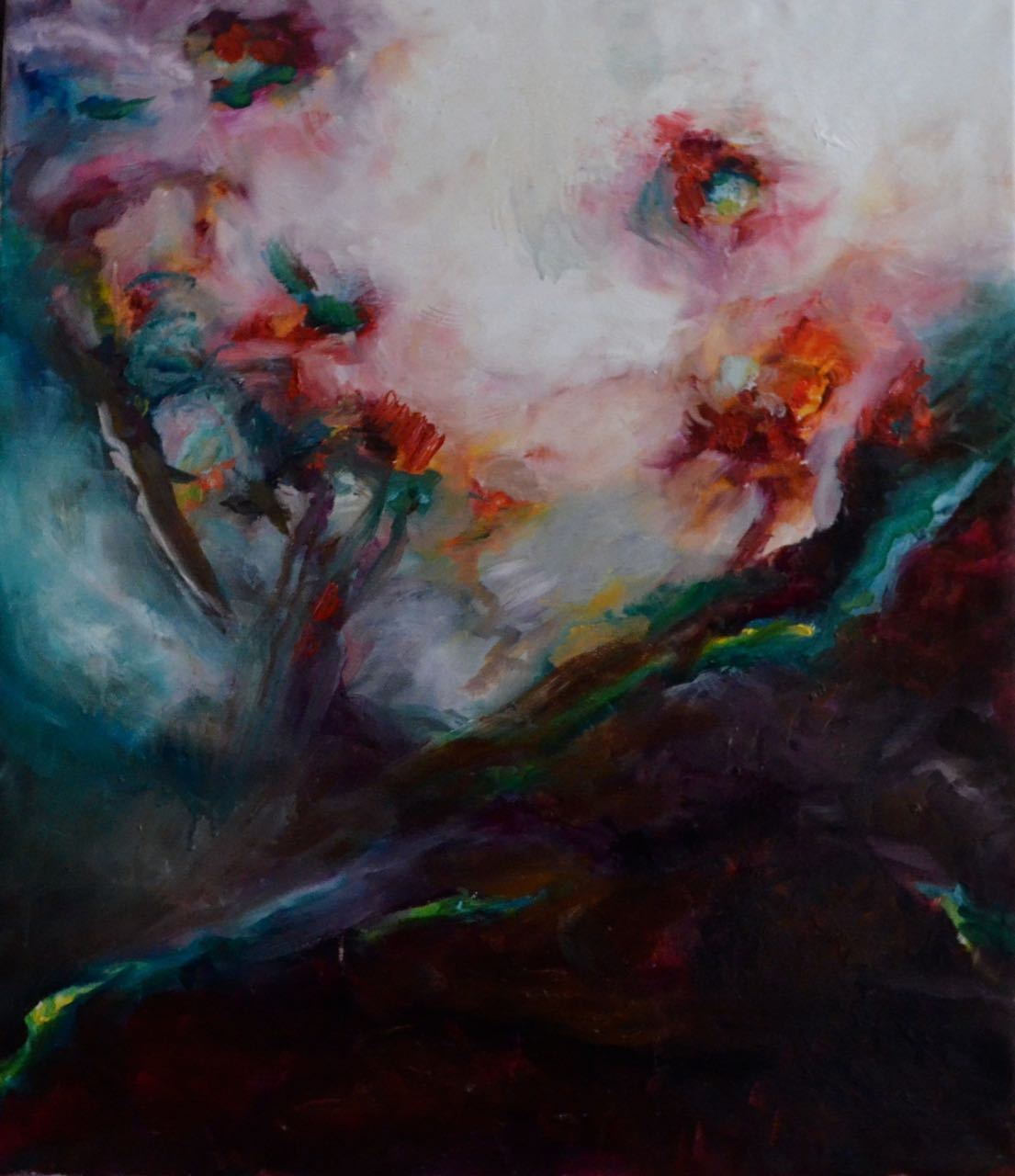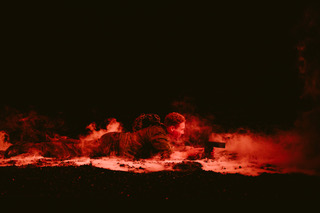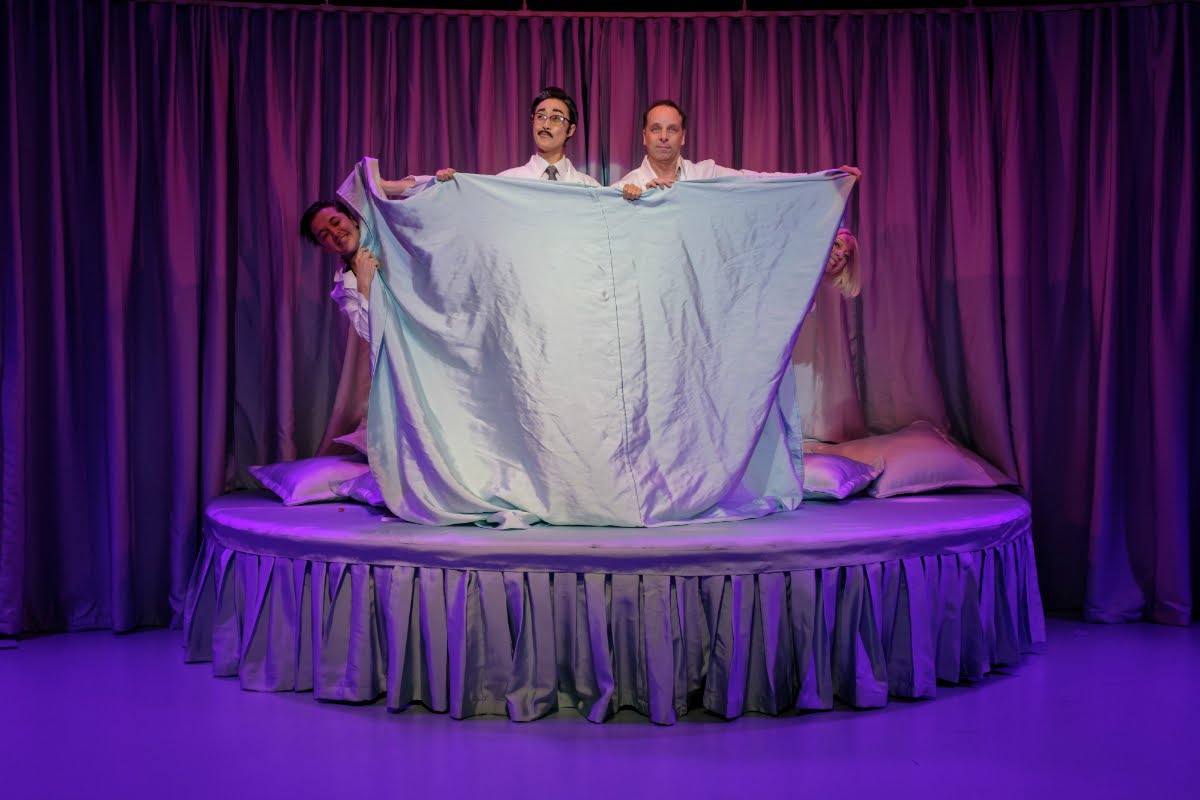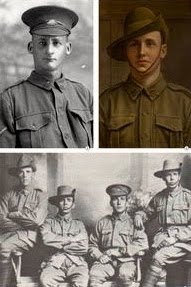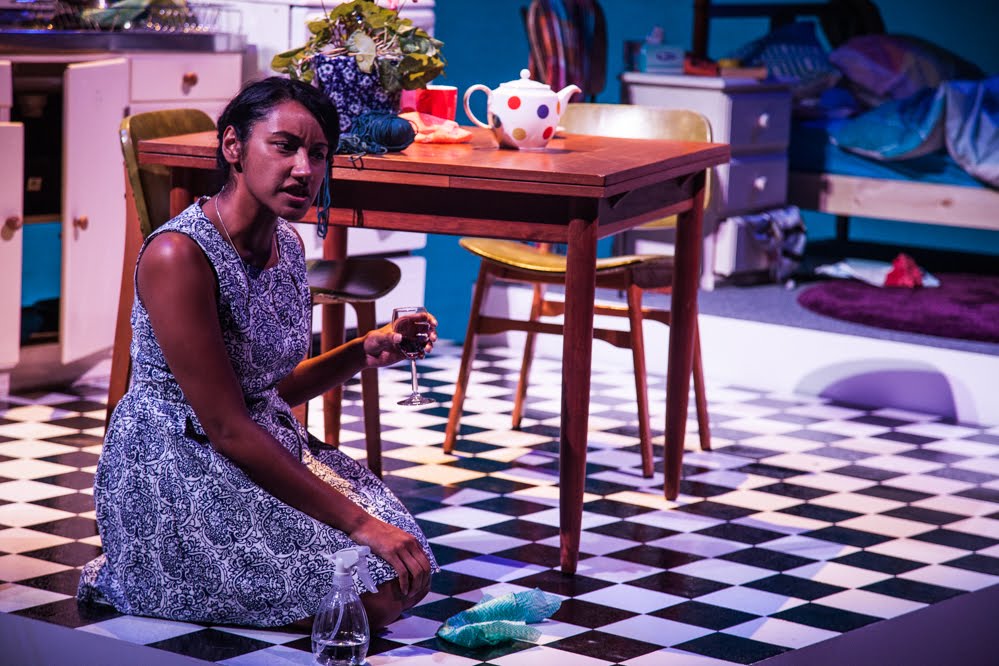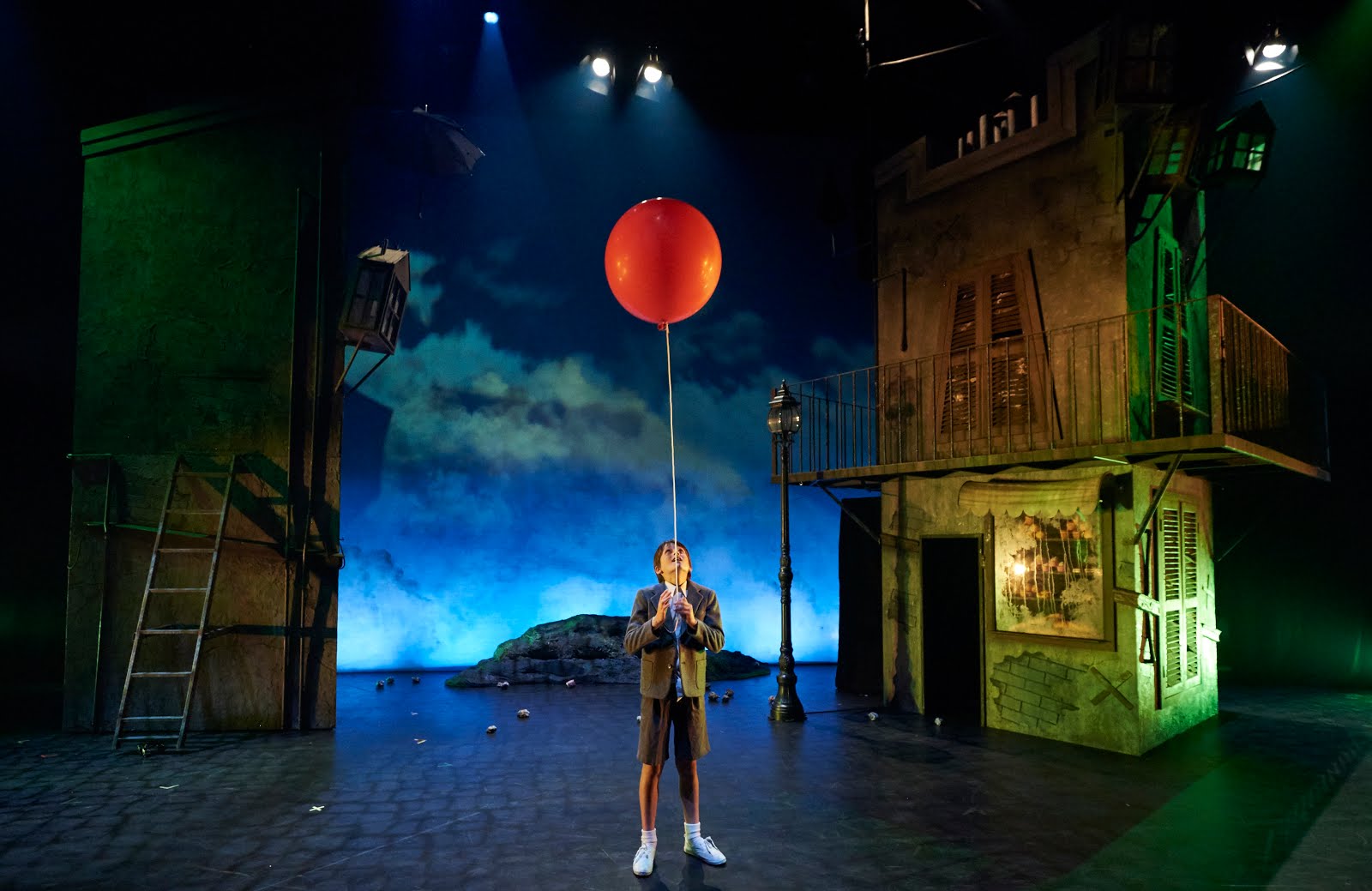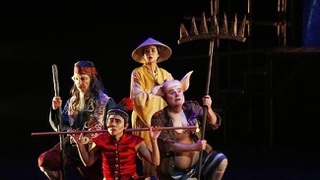Here’s what
the 7 of us have each been doing the first 6 months of 2012:
Donna
When not
wrangling the script for my adaptation of Monkey, Journey to the West
for Kim Carpenter's Theatre of Image, I've been either working on a new play Jump
For Jordan, or on my doctoral thesis. And you know how some projects end up
being way more ambitious than you had anticipated? Well, it's been a
time-gobbling brain-stretching summit-climb on all three. But I did what you do
in such cases: dug deep, bought time, ate chocolate, and managed the crumpling
effects of the sitting marathons with lots of yoga. Happily, the
agony-ecstasy development threshold of pinning down the first draft is more or
less complete in each case. We've assembled an outrageously talented cast to
workshop Monkey in August, and I'm so looking forward to putting this
mad epic tale on the floor.
The strands
of the thesis exist in broad form, giving me another year to pull it towards
intelligibility and completion. And Jump For Jordan is ready to
workshop, thanks to two astute dramaturgical butt kicks delivered by Lee Lewis
and Cath McKinnon which rightly shifted it from domestic tragedy to black
comedy. The importance of timely peer feedback, and not identifying too
closely with your characters, is duly noted. Other than that? Being swept up by
7-ON's super power for self-organisation as we saw our book, No
Nudity, Weapons or Naked Flames, through to publication
in March. Liaising with the indefatigable Gus Supple on the development of Platonic,
7-ON's next production. Developing a mini musical for children with Sally
Sussman called Caylee's Ukulele. And rejoining the board of Powerhouse
Youth Theatre which this year turns 25 years young.
Verity
After two productions opening within two weeks of each other
at the tail end of 2010, 2011 was a year of lots of teaching and mentoring for
me, which was both delightful and frustrating. Delightful for bringing me in
contact with the people I got to meet and work with, inspiring for the
loveliness of this upcoming generation of writers (I’m a big fan of Gen-Y, you
smart, savvy, amusing lot!), and, since I was also working with a particularly
engaging group of older writers, let’s hear it for the older chaps, too.
Frustrating in that I’d rather be writing and earning my crust that way. I
guess it has ever been thus, and perhaps, in this time of intense competition
for such a narrow range of opportunities, inevitable. Public forays of my work
were occasional—short pieces as parts of group shows. This is valuable
experience both when those shows work, and when they don’t. Even the tough
experiences will teach you something, and every time you engage you extend the
number of peers whom you get to know.
In an overview like this, I can’t not mention the
publication (by Federation Press) of 7-ON’s book of monologues, No Nudity, Weapons or Naked Flames. I did the editing for this and it was
a great experience to be working so closely with the texts of my fellow
writers. We are all very proud of the subsequent book.
Nailing runner–up in the Blake Prize for 2011 provoked a
furious burst of poetry writing. Lord knows where that is leading, but it’s
intensely satisfying. I have a reading at Parnassus Den (to be directed by the
wonderful Sarah Goodes) on 5 August this year of a play I’ve been working on
for yonks, The Ice Season. After
winning the Open Section of the Inscription Prize, this play has done the
rounds a bit and I am having to exercise faith that it has the potential for a
memorable theatre experience that I think it does. I hope a few of you out
there may come along to the reading and give me some feedback on it. I have other
pieces in development but mum’s the word there in case I hex them!
Hilary
One
of the peculiarities of this profession is that you can spend many years
toiling away with nothing to show for it, and then all at once it all bears
fruit. In
February, Black Swan/Perth International Arts Festival produced The White Divers of Broome, a play I’d
been working on for four years. Even so, I must have written twelve more drafts
over the rehearsal period (poor actors!). It was a big cast, very high
production values, in the largest theatre I’ve ever played (the Heath Ledger),
so it was a steep learning curve—thus the many rewrites. Kate Cherry’s
production was beautiful, meeting such demands as underwater diving, Japanese
lantern processions, and a ball.
In
March I had two one-acts to write, commissioned by Kambala School. These were Ugly Beauty and Connectivity, produced in June. Congrats to a cast that is also
juggling debating, netball, soccer, violin, homework …
Last
month I was in London, where Victim,
Sidekick, Boyfriend, Me played at the National’s Cottesloe Theatre. It was
commissioned as part of their Connections Programme, along with nine other
plays (see my earlier post). Angela’s
Kitchen, Paul Capsis’ one-man play co-created with Julian Meyrick and myself
as associate writer, has just been published and is on the road for a six-month
national tour.
And
presently, The Splinter is in
rehearsals at the Sydney Theatre Company, opening on August 15. I describe it
as a Gothic horror puppet show, though that really doesn’t do it justice …
Noëlle
When I look back at the first 6 months of 2012 I’m surprised
to discover how much time I spent in libraries and archives (bricks and mortar
as well as digital). My partner was a Visiting Fellow at Yale, and I piggy-baked
on her trip to spend March and April in the US and England. My brother lives in
New Jersey, so I met my lovely niece and nephew for the first time (in person),
and visited New York, also for the fist time (loved it). In Hew Haven I took advantage
of Yale’s fabulous Sterling Library to research nineteenth century travel
narratives of South America for a non-fiction piece Darwin’s Thistles—a Cautionary Tale (published in Mapping South, out soon). I also fretted
about the huge disparity between the Haves and Have-nots in America. I just don’t
understand why ‘blue-collar’ and low-paid workers vote against affordable health care and taxing billionaires. But that’s another
story—maybe even a play?
My poem Once Upon a
Tiger won a poetry competition in the UK. Seeking Mr Freud, a one-act black comedy, was broadcast on 89.7 Eastside
FM Radio. I did a week-long environmental history workshop at the ANU; kept
working on The Book of Thistles; kept
writing and developing performance essays. Good
With Maps had a Parnassus Den reading directed by Kate Gaul and performed
by Heather Mitchell. (Not all my performance essays lend themselves to this
kind of double life with an actor, but GWM
really does.) I just presented the latest performance essay, Loose Gravel—a poetics in Sydney, and
will be doing it in Brisbane late August. Am going to be spending a bit of time
in Queensland over the coming year or 2, thanks to an Arts Queensland/University of Queensland Creative Fellowship.
Ned
2012 has
been a pretty crazy year, and that’s saying something given the past few years.
It began with the publishing of my book, Playground
Duty. I spent 2011 writing it. Full time. For the first time for fifteen
years I wasn’t trying to juggle writing (and acting) with a full time teaching
job. It was bliss. So, in early 2012, I was sitting at home wrestling with a
new play when there was a knock at the door. A kindly face from Australia Post
was standing there with a satchel. I knew what was inside. I didn’t know what
to do. I took it inside and put it on the table and looked at it.
“What will
I do now?” I asked myself.
“Better
open it”, came the reply.
So I did.
And there it was. My brand spanking new book. I took it in my hands and it felt
… well, good. The house was empty. I didn’t feel like talking to myself anymore
so I just stared at it and wondered what to do next. It was a very weird
feeling for someone who writes plays. I was used to seeing my work come alive
in the company of others. It was the beginning of a very different type of
journey. And it’s still ebbing and flowing.
The play I
was wrestling with is now almost fully formed, except for that most elusive of
things, an ending. I am loving being able to give it my full attention rather
than making it fit in where I could grab a spare minute. I’ve also finished an
adaptation of Women of Troy for ABC
Radio National. It’s being recorded in a few weeks. And the icing on the cake
has been the publication of 7-ON’s No
Nudity, Weapons or Naked Flames. I
wonder what the rest of the year will bring?
Cath
The last 6 months have flown fast and it’s a matter of
keeping up now. I’m off away for a long weekend to live, breathe and
intricately plot my new piece for ABC Radio. After an excellent reading with a
large (luxury!), insightful cast and director it became clear that the script
either has to go longer to 90 mins or needs to be cut significantly. I know
where it’s headed and the ideas are flowing and hope I can bring it together.
It’s exciting but there is very little time to get it up to speed so the need for
a total retreat is urgent.
I’m also very much looking forward to a reading of my new
play gifted early next month. Augusta
Supple read an earlier draft and kindly offered to organise a closed reading at
the Arts Platform. Very grateful as I think I’ve made it clear in my earlier
blog how much I value the process. Producers—wake the fuck up! There’s a
virtuoso role for a brilliant actress in her fifties! (That’s my new
self-promotion voice talking—Is it working?) Oh and then just the other day
another Platonic play-let fell out
of my head and onto the page and into the mix for the production at the end of
the year.
But amongst all this I am creating paintings, sculptures and
mixed media works for an exhibition called Resolution:
Sublimate. For me all the art forms cross-sect, fertilize and, and, I
thought I’m not going to follow that analogy but let’s face it … it could
either turn into a tree or some monster from the black lagoon—both reasonable
responses to this wild inexplicable experience of consciousness.
Vanessa
January—Eat chocolate. Think about stuff.
February—I took my play ‘Every
Second’ to the PlayWriting Australia National New Play Festival in
Melbourne. Two weeks of rewriting, working alongside actors, director and
dramaturge to refine the work and eventually stage it as a moved reading for …
well other playwrights, directors, actors and dramaturges plus theatre
practitioners from around the world.
March—rewrite. Eat chocolate.
April—Eat Chocolate. Write new stuff. Think. Rewrite.
May—My play The Magic
Hour (directed by Chris Bendall) premiered at Fremantle’s Deckchair
Theatre—a beautiful production starring Ursula Yovich, a caravan and a glow in
the dark beanstalk. I was able to spend time in March working with Chris and
Ursula on the script and then have that final time of rehearsal to hone the
piece still more and the whole experience was great.
June—Shannon Murphy’s hilarious production (at the Griffin
theatre) of Porn.Cake. I remember
sitting on a couch in rehearsals with producer Michael Sieders and we both
gasped at the same moment, laughed, and covered our faces at the same moment.
This told me that we were on the same wavelength. (Porn.Cake has been recently nominated for a 2012 AWGIE.)
July—short play I wrote, about love and sacrifice and
gnomes: Small Hard Things went on at
Tamarama Rock Surfer’s Bondi Feast directed by Scarlet McGlynn.
This year I am PWA Writer in Residence with Griffin Theatre
in Sydney. I have been working with three emerging playwrights (but actually
they are all quite accomplished and established in their own ways), attending
Griffin meetings and learning about the nuts and bolts of this much loved
theatre. As well, we worked (and wrote) with the Griffin Studio gang to make a
one night only site-specific work in Kings Cross entitled Lovely/Ugly.
Publishing wise there has been the thrill of our 7-ON
monologues produced in No Nudity,
Weapons Or Naked Flames and another monologue of mine First Light was published as part of the atyp anthology The Voices Project (Currency). Plus assorted teaching gigs with writing students at NIDA,
atyp, NSW State Drama Camp and Newcastle Uni. So, busy first half of year … big
move to Newcastle with partner and child, acquisition of vegie garden (small)
and dog (largish). Life balance juggling agogo. And of course … more writing
and rewriting, more dreams, more discussions, more plans for more projects and
lots, lots more chocolate.
